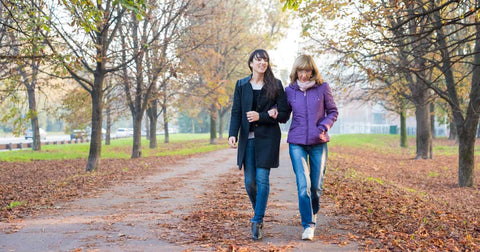Feeling sluggish after meals? That post-meal slump is a common experience, but there's a simple and enjoyable way to revitalize your body and aid digestion: walking.

Incorporating a gentle stroll into your post-meal routine can offer numerous benefits. Let's explore the science behind walking after eating, its positive effects on digestion, and how it can contribute to your overall well-being.
Should You Walk After Eating? The Digestive Perks
Yes, a leisurely walk after eating can be a boon for your digestion. Here's why:
-
Stimulates Gut Motility: Walking encourages the movement of food through your digestive tract, preventing sluggishness and constipation.
-
Reduces Bloating and Gas: Gentle movement can help release trapped gas and alleviate bloating.
-
Improves Blood Sugar Control: Walking helps your muscles utilize glucose (sugar) for energy, promoting healthy blood sugar levels and preventing spikes after meals.
Walking After Eating Benefits: Beyond Digestion
The benefits of walking after eating extend beyond just digestion:

-
Boosts Energy Levels: A short walk can combat that post-meal fatigue and revitalize your energy.
-
Improves Mood: Physical activity releases endorphins, natural mood boosters that can enhance your sense of well-being.
-
Reduces Stress: Stress can negatively impact digestion. Walking can help alleviate stress and promote relaxation.
-
Aids Weight Management: Walking after meals can contribute to calorie burning and support weight management efforts.
Walking After Dinner: An Evening Ritual for Better Health
Incorporating a walk after dinner into your routine can be particularly beneficial. It can help:
-
Improve sleep quality: Gentle exercise can promote better sleep, but avoid intense workouts close to bedtime.
-
Enhance digestion: Aiding digestion before bed can prevent nighttime discomfort and promote restful sleep.
-
Connect with loved ones: An after-dinner walk can be a relaxing way to connect with family or friends.
Benefits of Walking After Dinner: A Miami Perspective

In a vibrant city like Miami, with its beautiful weather and outdoor spaces, incorporating a walk after dinner can be a delightful way to unwind and connect with nature while supporting your digestive health.
Normal Blood Sugar 30 Minutes After Eating: The Impact of Walking
For individuals with diabetes or those concerned about blood sugar control, walking after meals can be particularly beneficial. A normal blood sugar level 30 minutes after eating is typically below 180 mg/dL. Walking can help prevent spikes in blood sugar and promote healthy glucose metabolism.
Food Intolerance and Digestive Discomfort: Unveiling the Connection
If you experience persistent digestive issues, even after adopting healthy habits like walking after meals, consider the possibility of food intolerances or sensitivities. These can trigger inflammation and disrupt your gut health.
A food sensitivity test kit can help you identify specific foods that might be contributing to your digestive problems. By eliminating or reducing these trigger foods, you can support a healthy gut and improve your overall well-being.

Key Takeaways:
-
Walking after eating can significantly aid digestion, regulate blood sugar, and boost energy levels.
-
Incorporate a post-meal stroll into your routine, especially after dinner, for optimal benefits.
-
If you experience persistent digestive issues, consider a food sensitivity test to identify potential food intolerances.
Remember, this article is intended for informational purposes only and should not be considered a substitute for professional medical advice. If you have any concerns about your digestive health or experience any discomfort while walking, consult a qualified healthcare professional.
Frequently Asked Questions:
1. Is it better to walk after every meal or just after dinner?
While walking after any meal can be beneficial, a post-dinner stroll might be particularly helpful for promoting better digestion before bed and improving sleep quality.
2. How long should I walk after eating?
Even a short 10-15 minute walk can offer digestive benefits. However, listen to your body and avoid strenuous exercise immediately after a large meal.
3. Can walking after eating help with weight loss?
Yes, walking after meals can contribute to calorie burning and support weight loss efforts. It also helps regulate blood sugar levels, which can prevent cravings and overeating.
4. I experience bloating and discomfort after meals. Can walking help with that?
Gentle movement like walking can indeed help alleviate bloating and gas by stimulating digestion and helping move food through your intestines.
5. I'm worried that walking after eating might worsen my acid reflux. What should I do?
If you experience acid reflux, it's best to wait at least 30 minutes after eating before going for a walk. Avoid lying down immediately after eating and consider elevating the head of your bed to minimize nighttime reflux.


.png?v=1737390083)
.png?v=1737187409)


